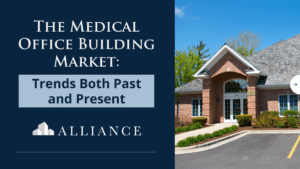Living Longer, Saving Less
The economic outlook in America looks good right now. The stock market is soaring, employment is strong, and our economy is diversified and resilient. It’s hard to fault people for feeling optimistic that the future will be good and things will work out. But there are still many long term trends that should make investors weary.
Americans are living longer, and the baby boom generation is approaching retirement, but our national saving and investing rates are poor. How will people live when they retire? Will they even be able to retire? The only time will tell whether we’re going to have a small problem, or a huge crisis.

We can see potential trouble on the horizon in Americans’ savings rates. In recent years, Americans have saved, on average, less than 4% of our national income. In other advanced nations with strong economies (Germany, Israel, South Korea, etc.), this rate is above 10%. Savings are our investments for the future, and I worry that our low rates will set us up for trouble down the road.
The problem is complex. In all age groups, Americans are not very financially literate and are often unaware that they’re living beyond their means. Furthermore, too many people are expecting a bailout if they don’t have enough to live on in old age. Counting on kids or government to step in is incredibly risky. The government is not setup to do this — it would require a huge investment in public assistance programs that Americans have resisted for decades — and it’s wrong to put that burden on our children and grandchildren. We need to take responsibility for our own futures.
As an investor monitoring the situation over the coming years, I’ll be keeping a close eye on our national savings rate as a proxy for our long term financial health. Consumer debt (and whether it’s rising or falling) will be another useful indicator of where things are headed. For individuals, this might be the difference between misery and a safe retirement, down the road. For society, how well we handle the baby boomer retirement wave has important implications for the economy.
When everybody is optimistic, that’s when it’s particularly important to keep an eye out for hidden risks. Savings rates, consumer debt, and preparedness for retirement are all potential dangers to monitor. In the meantime, I encourage everybody to remember that in the long term, our families’ financial security depends on our actions today.



